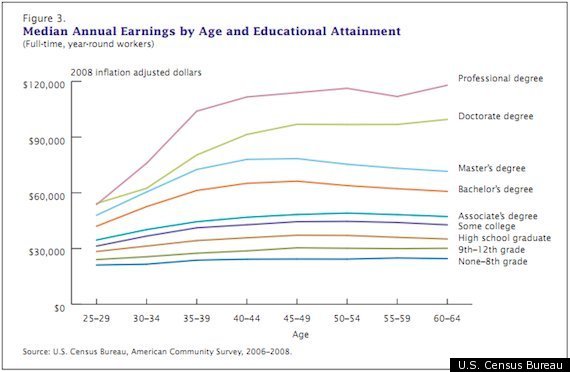
Despite a little skepticism, it still more than pays to go to school.
In fact, education has a greater effect on how much one earns over their career than does race or gender, according to a new study by the U.S. Census Bureau. Based on data from before the recession, between 2006 to 2008, the report estimates that over a forty-year career, the variation in annual earnings between the least educated (or those with an eighth grade education or less) and the most educated (those with a doctorate degree) is $72,000.
That's five times higher than the difference in annual earnings between genders, which stands at $12,618. It's also substantially more than the difference between whites and other races.
Education also has a significant effect on employment levels, the study reports. Indeed, 68 percent of those with a doctorate are employed full-time, compared to only 38 percent of those with less than a high-school diploma, the report finds.
A recent study from the Labor Department drew similar conclusions, reporting that the unemployment rate for those with a college degree is around half the national average, while those with only a high-school diploma exceed it.
Still, while it pays to go to school, those benefits have recently been a bit mitigated. The Economic Policy Institute reports that the average wage of new college graduates dropped by almost a full dollar last decade.
Here is a chart showing the median annual earnings by age and educational attainment for full-time, year-round workers according to the U.S. Census Bureau:

